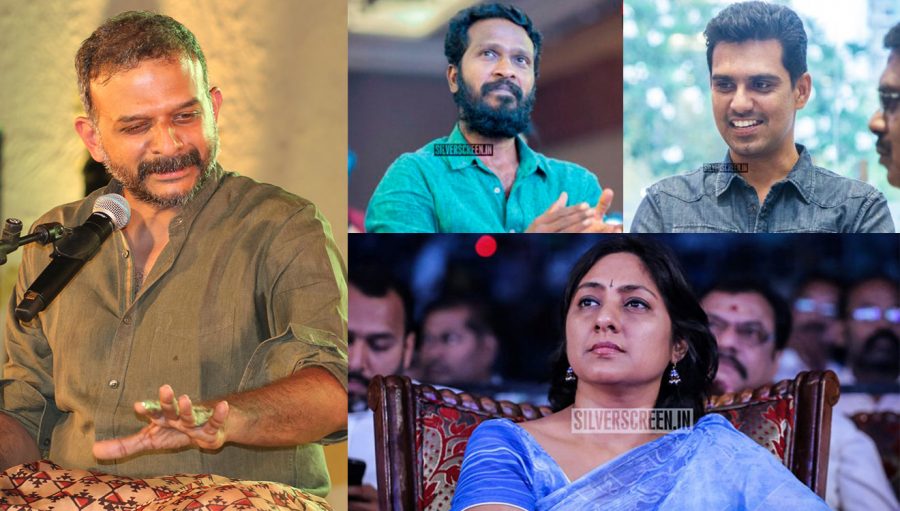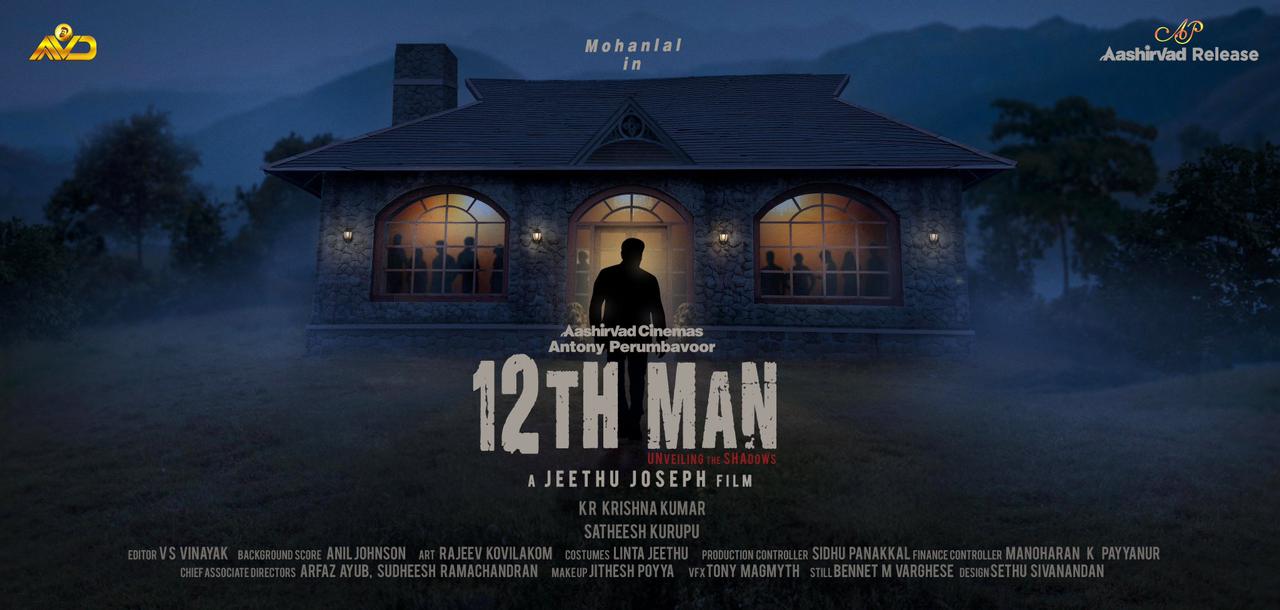Tamil Nadu Progressive Writers and Artists Association conducted a virtual panel discussion on Wednesday to condemn the Cinematograph (Amendment) Bill 2021 .
Led by actor Rohini, the state vice-president of the association, many members from the Tamil film fraternity, including director Vetrimaaran, actor Sathyaraj, producers SR Prabhu and G Dhananjayan, and singer TM Krishna, participated in the discussion and expressed their objection to the proposed amendments to the Cinematograph Act, 1952.
The proposed bill aims to introduce age-based certification, stricter curbs for piracy, and allow the union government to direct the Central Board of Film Certification (CBFC) to re-examine the certification of a film.
Speaking to Silverscreen India earlier this week, directors Bejoy Nambiar, Leena Manimekalai and CS Amudhan criticised the proposed amendments, particularly calling out the ability it grants to the union government to control the medium. A group of filmmakers, academicians and students also drafted a letter in response to the Information and Broadcasting Ministry’s notification seeking public comments on the bill draft.
In a recorded video message that was streamed during the panel discussion on Wednesday, Vetrimaaran said the bill gives the ultimate power to the union government over the creative art form of cinema and added that this will force filmmakers to produce content only based on the narrative set by the government.
Recalling how Tamil cinema has helped the social justice movement in the state in the last 60 years, Vetrimaran said, “Cinema has been a significant tool in the Dravidian political armoury to convey social messages to the masses.” Something that could change with the proposed amendments.
He also added that in a country with big film industries like India, such rules will disturb the stability of the film business.
SR Prabhu expanded on this point. “The proposed amendments to the Cinematograph Act create hurdles from the writing to the production stage. This will result in a reduction of investments in cinema and lead to fewer films being produced, which will then affect the livelihood of those dependent on the industry,” he said.
TM Krishna, meanwhile, said that the Cinematograph Bill 2021 and IT Rules 2021 should be condemned together as both challenge the creative spirit of artists. “All these rules affect the creative environment. They inflict fear and push the artist to self-censor. As a creative community, we should protest against all these rules which are interconnected,” he added.
Producer G Dhananjayan said that recalling films after certification is an insult to the creators and it will create great uncertainty in the film business. “If this bill is passed, we can only make safe films which are not controversial and won’t be condemned by any community,” he added.
Anand Patwardhan, the Indian documentary filmmaker who is known for his socio-political, human rights-oriented films such as Jai Bhim Comrade and War and Peace, said that no filmmaker would want someone else to act as a super-editor to cut a film after its completion. He also mentioned that filmmakers like him have been trying to engage with the CBFC and get it to become more liberal.
In his pre-recorded message, Sathyaraj made a reference to the classic Tamil film Parasakthi (1952), starring Sivaji Ganesan, which is known for its iconic dialogues written by late politician M Karunanidhi. Sathyaraj said that such films helped him in developing rational and progressive thinking. “With the new rules in the cinematograph amendment bill, how can filmmakers create films like Parasakthi, Ratha Kanneer, Amaidhi Padai, Kabali or Asuran? It would be best for the country if the union government reassesses the proposed amendments,” the actor added.
Meanwhile, Tamil Nadu Chief Minister MK Stalin on Tuesday wrote a letter to Union Law Minister Ravi Shankar Prasad to withdraw the proposed amendments to the Cinematograph Act, 1952.
Recommended
In the letter, Stalin noted that following the prescribed guidelines and procedures, once a film is certified for public viewing by the CBFC, it falls within the domain of the state governments and hence, it must be left to the states as law and order is a state subject. “But now, the union government, by the proposed act, tries to go against the spirit of cooperative federalism and transgress the powers of the state governments and its own CBFC,” he wrote, adding, “Incidentally, as a prelude to this amendment, the Film Certification Appellate Board which was functioning as an appellate body against the CBFC was dismantled.”
Stalin further added, “Curbing the creative thinking of the film fraternity and imposing conditions on them on how films are to be made are totally unjustified and in fact, it is quite opposite to the very ideals of our constitution. Taking away the right to freedom of thought will only weaken our democracy – which has to be vibrant always irrespective of the parties in power.”



